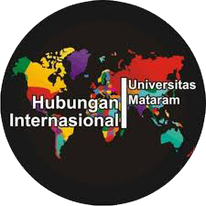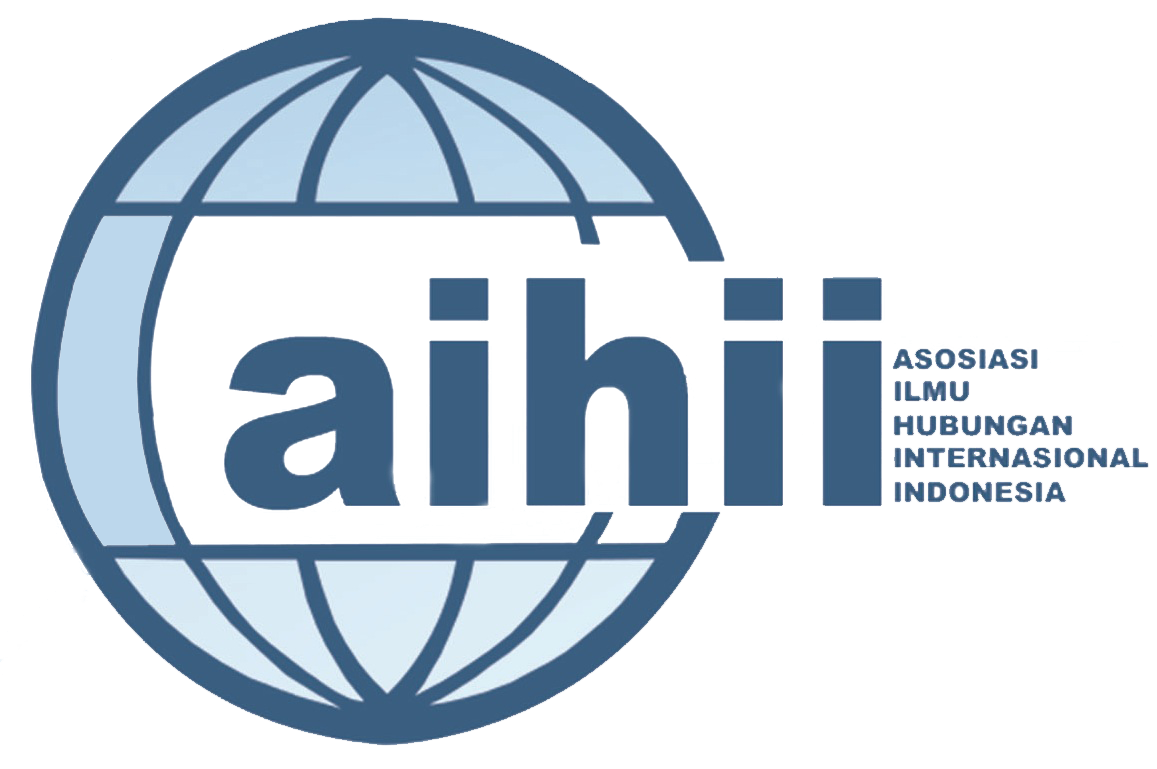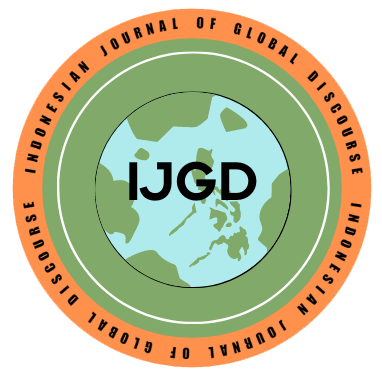The South China Sea Conflict and Security Cooperation in ASEAN Waters
DOI:
https://doi.org/10.29303/ijpss.v3i1.56Keywords:
Security, Stability, CooperationAbstract
The study aims to analyze how ASEAN acts to keep the region from conflicts over the South China Sea. The South China Sea conflict is a conflict that has a major impact on the ASEAN region; it is influenced by the territorial waters owned by several countries in ASEAN according to the United Nations Convention for the Law of the Sea (UNCLOS) in 1982. China’s unilateral claim in 2012 was the beginning of ASEAN’s concerns over the security and stability around the South China Sea and ASEAN waters. This article focuses on ASEAN’s response in response to China’s moves after unilateral claims and the establishment of military fleets around the Spratly and Paracel islands. The ASEAN Regional Forum (ARF) on 2018 is an important response for ASEAN in the face of maritime security threats. Establishment of policy strengthening security cooperation will have a significant impact in the development of stability in the South China Sea region, where the situation in the region worsen with the increasing number of actors involved in the conflict. The findings obtained from this paper aim to explain the analysis of ASEAN schemes to safeguard the territorial waters around the South China Sea.
References
ASEAN Secretatiat’s Information Paper, 2018, “Maritime Cooperation in ASEAN,”
ASEAN Political- Security Community, Retrieved from https://asean.org/asean-political-security-community/
BBC Online (2011). “Sengketa Kepemilikan Laut China Selatan,”, https://www.bbc.com/indonesia/laporan_khusus/2011/07/110719_spratlyconflict [11/10/2020]
Buzan, B., Wæver, O., Wæver, O., & De Wilde, J. (1998). Security: A new framework for analysis. Lynne Rienner Publishers.
Council on Foreign Relation (2019), Territorial disputes South China Sea, https://www.cfr.org/global-conflict-tracker/conflict/territorial-disputes-south-china-sea [08/10/2020]
Hartono, Budi. 2018. Copenhagen_School_Sekuritisasi. [06/10/2020]
Haryanto, A., & Darmawan, A. B. (2015). Sengketa Laut Tiongkok Selatan: Ancaman Bagi Komunitas Keamanan ASEAN?. Global Strategis, 9(2), 277-296.
Junef, M. (2018). Sengketa Wilayah Maritim di Laut Tiongkok Selatan. Jurnal Penelitian Hukum De Jure, 18(2), 219-240.
Karim, M. A. (2016). Should the ASEAN regional forum (ARF) revisit its core areas. An International Journal of Asia-Europe Relations, 2(1), 100-119.
Kembara, G. (2018). Partnership for Peace in the South China Sea. CSIS Working Paper Series, February 2018,
Grieco, J. M. (1990). Cooperation among nations: Europe, America, and non-tariff barriers to trade. Cornell University Press.
Grossman, D. (2020). Military Build Up in the South China Sea.
Manurung, Hendra. (2017). South China Sea Territorial Dispute: A Lesson for Association of South East Asian Nations (ASEAN). SSRN Electronic Journal. 10.2139/ssrn.3026333.
Nikkei Asia, 2020. Vietnam stresses South China Sea security issues at ASEAN meeting. https://asia.nikkei.com/Politics/International-relations/South-China-Sea/Vietnam-stresses-South-China-Sea-security-issues-at-ASEAN-meeting [19/10/2020]
P.P, Nainggolan, 2013, “Konflik Laut China Selatan dan Implikasinya Terhadap Kawasan”. Jakarta: P3DI Setjen DPR Republik Indonesia.
Republika, 2019. Menteri Luar Negeri Asia-Pasifik Bahas LCS di Bangkok. https://republika.co.id/berita/pvg7wn382/menteri-luar-negeri-asiapasifik-bahas-lcs-di-bangkok [19/10/2020]
Reuters, 2020. Indonesia to U.S., China: Don't trap us in your rivalry. https://www.reuters.com/article/us-indonesia-politics-foreign-minister-idUSKBN25Z1ZD [18/10/2020]
Schofield, C. H., & Storey, I. (2009). The South China Sea dispute: Increasing stakes and rising tensions (Vol. 24). Washington, DC: Jamestown Foundation.
Shoji, Tomotaka. "Vietnam, ASEAN, and the South China Sea: unity or diverseness?." NIDS Journal of Defense and Security13 (2012): 3-21.
Suharman, Yoga. "Dilema Keamanan dan Respons Kolektif ASEAN Terhadap Sengketa Laut Cina Selatan." Intermestic: Journal of International Studies 3, no. 2 (2019): 127-146.
Sukma, R. (2012). The ASEAN political and security community (APSC): opportunities and constraints for the R2P in Southeast Asia. The Pacific Review, 25(1), 135-152.
TheGuardian, 2020. Asean leaders cite 1982 UN treaty in South China Sea dispute. https://www.theguardian.com/world/2020/jun/27/asean-leaders-cite-1982-un-treaty-in-south-china-sea-dispute [18/10/2020]
Truong, T. D. & Knio, K. The South China Sea and Asian Regionalism: A Critical Realist Perspective, Germany: Springer.
Wicaksana, I. G. W. (2019). Indonesia in the South China Sea: Foreign Policy and Regional Order. Global Strategis, 13(2), 35-48.
Wu, S.. (2013). Solving Disputes for Regional Cooperation and Development in the South China Sea: A Chinese Perspective. Solving Disputes for Regional Cooperation and Development in the South China Sea: A Chinese Perspective. 1-211.
Viray, P. L. (2018). Vietnam asks Philipines, China to stop escalating tension in South China Sea.(2020, October 10) Retrieved from https://www.philstar.com/headlines/2018/06/04/1821552/vietnam-asks-philippines-china-stop-escalating-tension-south-china-sea














